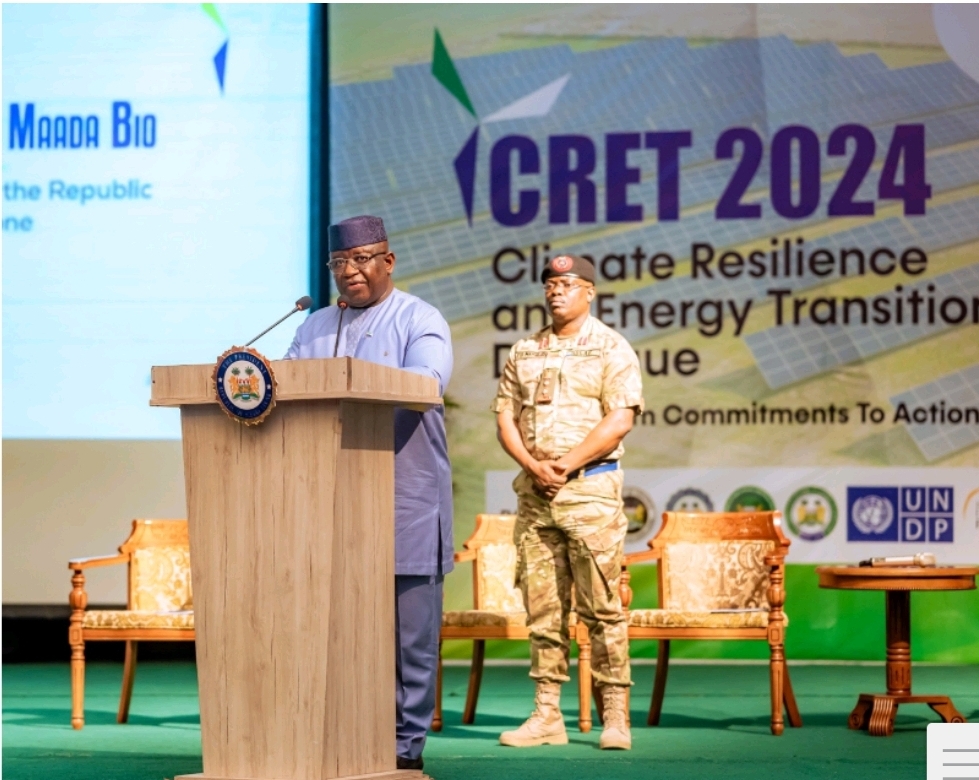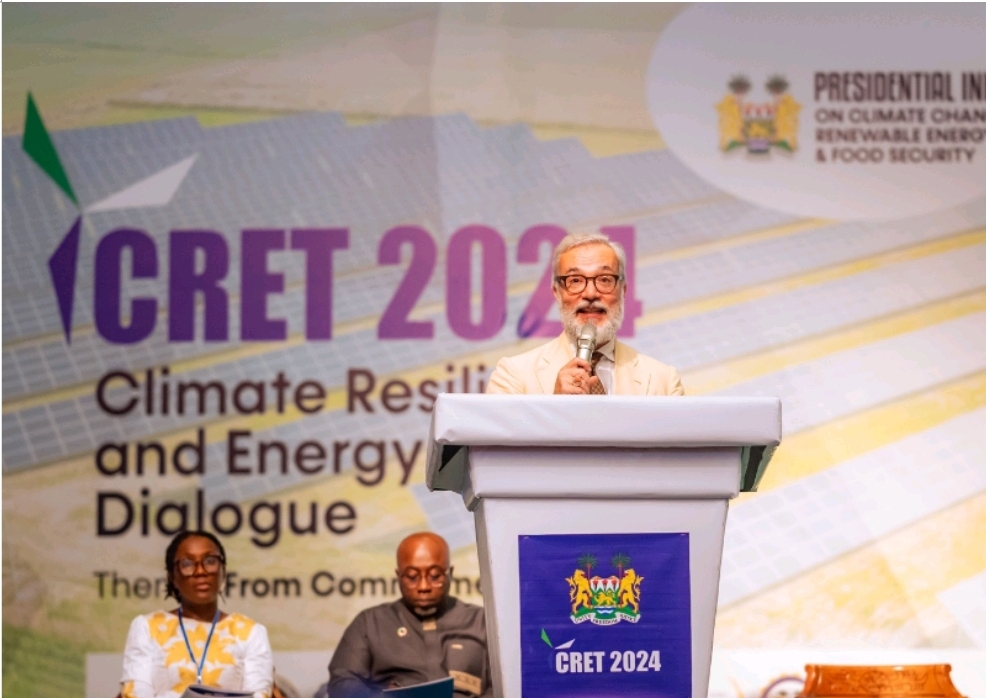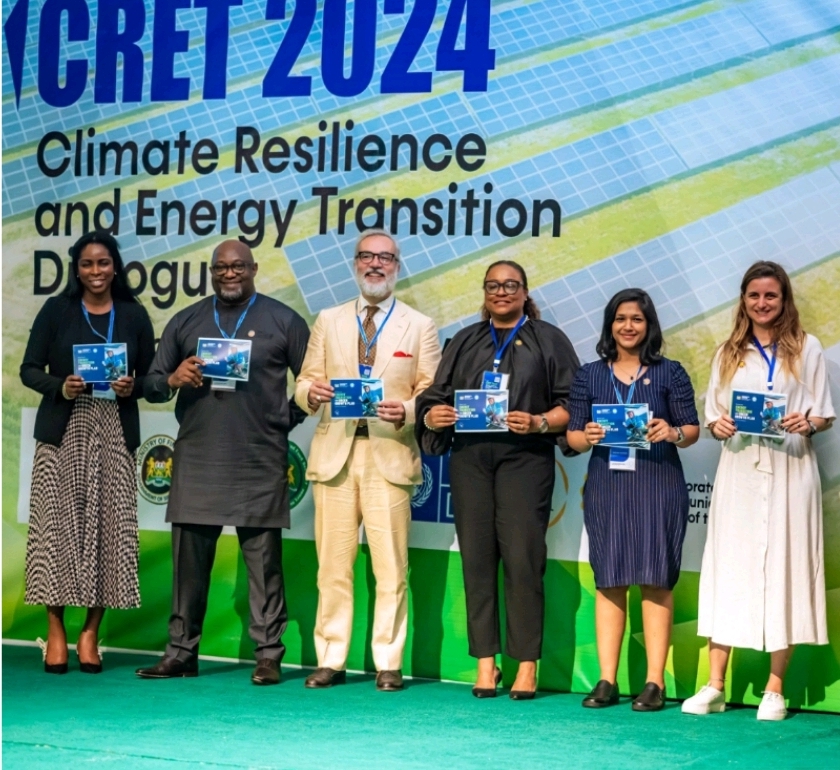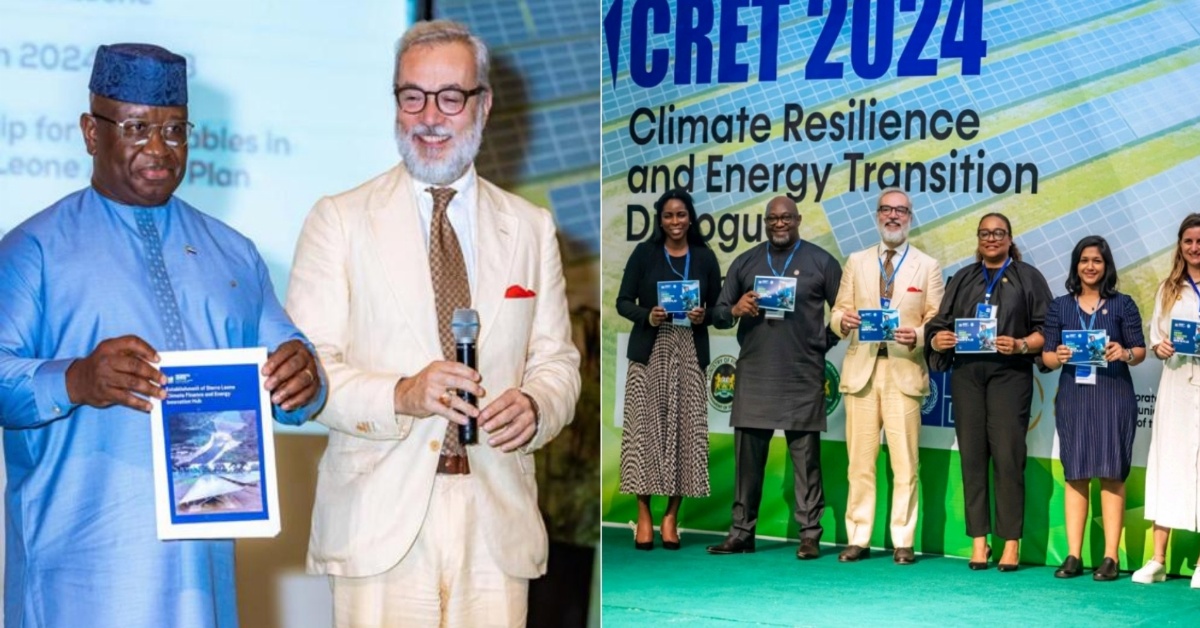His Excellency Julius Maada Bio, President of Sierra Leone, launched the country’s new Energy Transition and Green Growth Plan today at the Climate Resilience Energy Transition Dialogue in Freetown.
The plan was developed under the guidance of the Presidential Initiative on Climate Change, Renewable Energy and Food Security and the Ministry of Energy, with technical support from Sustainable Energy for All (SEforALL).
“Transitioning to clean energy will help avoid fossil fuel imports and stimulate job creation. In the coming years, this transition is set to drive GDP growth, positioning Sierra Leone as a leader in sustainable energy solutions and industrial development”, remarked His Excellency Julius Maada Bio.
“ We have pledged, planned and prepared, now we invite our development partners, the private sector and international community to join us in realizing this ambitious vision.”

The Energy Transition and Green Growth Plan marks a significant step in achieving universal energy access and economic development in Sierra Leone alongside establishing the country’s environmental stewardship.
It strives for economic growth across key sectors like power, transport, industry, buildings, appliances, and agriculture. Multiple scenarios have been analyzed to recommend different options for energy supply to meet the country’s future energy demand while aligning with its climate targets.
One of the scenarios charted in the plan is a Low Carbon Development pathway, which supports a range of public policy objectives, including the Feed Salone Strategy, the National Development Plan, the National Electrification and Clean Cooking Strategies, and Sierra Leone’s Nationally Determined Contributions (NDCs). This green growth future envisions a shift away from reliance on biomass and oil, with increasing shares of hydropower and solar PV.

Currently the country has an installed energy capacity of 0.3 GW. Achieving 100% electrification by 2040 will require 440 MW of mini-grids and grid reinforcements. By 2050, approximately 4.5 GW of hydropower and solar-based grid capacity, along with 2.5 GW for transmission and distribution (T&D), will be needed to power the country.
Sierra Leone will require approximately USD 15 billion to provide sustainable access to energy and power various sectors such as agriculture, industry and mining. Partial electrification of the transport sector will require an additional USD 24 billion in capital investment, bringing the total capital requirements to USD 39 billion across all sectors by 2050.
The Low Carbon Development scenario demands 55% more investment compared to the Business-as-Usual baseline, with the transport sector accounting for most of these costs. However, this increased investment will yield significant benefits, including the creation of close to 30,000 jobs by 2050, more than double the number projected under the baseline scenario.
“Today marks the beginning of something extraordinary – a milestone in Sierra Leone’s energy transition and green growth journey”, said Stefano Marguccio, Deputy Chief Executive Officer, SEforALL. “This transition is not the task of one organisation, one government or one industry alone. It is a collective effort.
By joining forces and aligning our goals, we can harness the power of technology, collaboration and policy to achieve cleaner energy solutions. SEforALL is committed to supporting the government to drive change that supports sustainable growth and a just transition for all Sierra Leoneans.”

At the Climate Resilience and Energy Transition Dialogue, SEforALL reinforced the need for this transition on multiple panel discussions and our ongoing on-ground efforts to bring access to clean and reliable electricity in healthcare, homes and businesses, including the Sierra Leone Healthcare Electrification Project and the financing of 7 mini-grid projects through the Universal Energy Facility.











